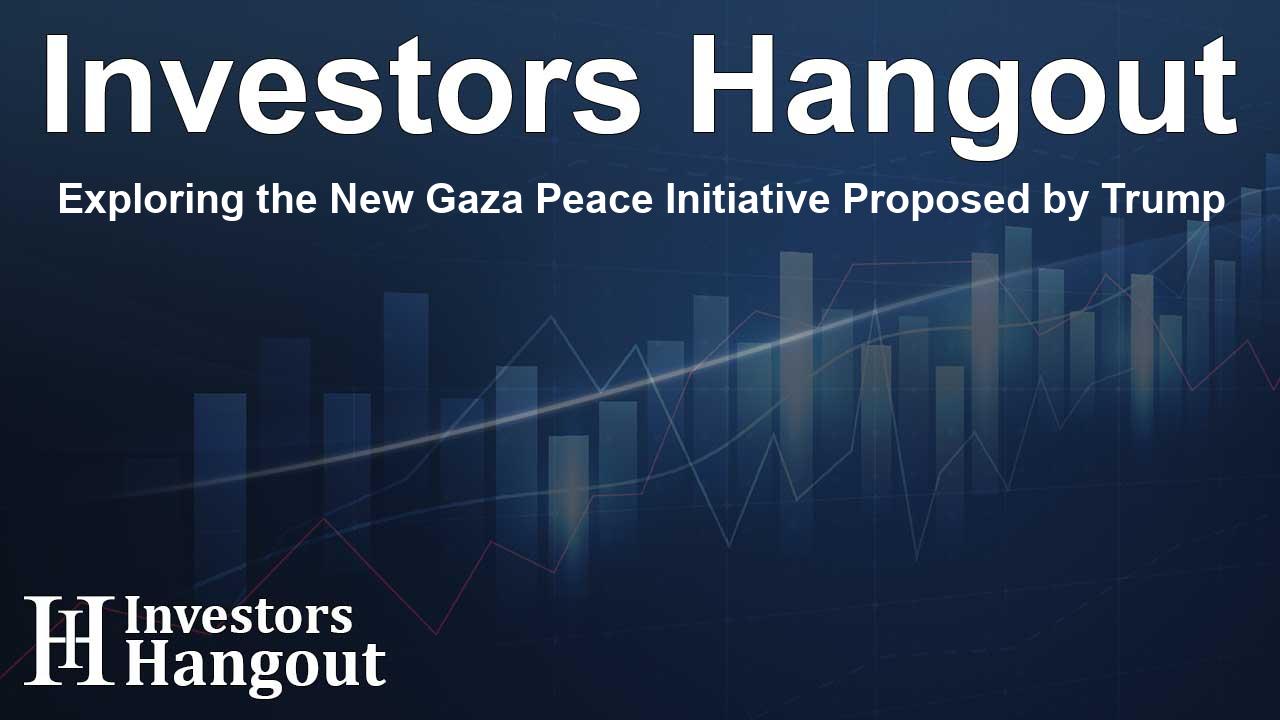Exploring the New Gaza Peace Initiative Proposed by Trump

Trump, Netanyahu Unite on a New Peace Proposal
President Donald Trump has garnered support from Israeli Prime Minister Benjamin Netanyahu for a peace initiative aimed at resolving the long-standing conflict in Gaza. In a recent announcement, the two leaders presented a collaborative effort to negotiate an end to the hostilities that have affected the region for years.
Key Elements of the Peace Framework
During a joint press conference held at the White House, Trump and Netanyahu unveiled a detailed proposal to bring about a potential resolution to the conflict. Central to this plan is the need for the Islamist group Hamas to accept the terms set forth. Without their approval, the success of the proposal remains uncertain.
Trump assured that if Hamas were to reject the offer, Israel would have full U.S. backing for any actions deemed necessary. The initiative outlines a comprehensive 20-point framework, which includes an immediate ceasefire, the release of hostages, and a phased withdrawal of Israeli forces from Gaza. Additionally, the plan calls for the disarmament of Hamas and the establishment of a transitional governance structure under international supervision.
Establishing the Board of Peace
A notable aspect of the proposal is the creation of an international "board of peace," to be chaired by Trump. This board would oversee not only governance but also the reconstruction efforts required in the Gaza Strip, which is central to moving towards long-lasting peace in the region.
Hamas: The Crucial Factor for Success
Netanyahu has voiced support for the peace plan, emphasizing its alignment with Israel's objectives: ensuring the return of hostages, dismantling Hamas’ military capabilities, and preventing any future threats from Gaza. However, the effectiveness of this peace initiative heavily relies on Hamas's response. Currently, the group is holding a number of hostages, and a representative has indicated a willingness to review the plan once officially received.
Geopolitical Context and Implications
This peace proposal surfaces amidst rising tensions in the region. Recently, Trump took a significant step by revoking the U.S. visa of Colombian President Gustavo Petro after controversial remarks regarding U.S. military actions in response to the Gaza protests. This action has further complicated U.S.-Colombia relations.
Before meeting with Netanyahu, Trump had intended to discuss strategies with leaders from Arab and Muslim-majority nations. These talks were expected to touch on the implications of Western nations recognizing the State of Palestine and Israeli plans to annex parts of the occupied West Bank.
Support from Arab and Muslim Leaders
Various leaders across the Arab and Muslim spectrum have expressed conditional support for the peace plan, contingent upon establishing a Palestinian state, unifying the governance of the Gaza Strip and West Bank, and preventing any Israeli annexation of territory. This widespread backing indicates the importance of aligning the plan with the broader aspirations of the Palestinian people.
Expert Analysis on Negotiating Challenges
Aaron David Miller, a veteran U.S. negotiator with extensive experience in the Middle East, remarked that while the proposal may be strategically advantageous for Netanyahu, the complexities involved in negotiations could prolong discussions indefinitely. Even if Hamas accepts the plan, the intricate political landscape suggests that reaching a firm resolution could take substantial time and effort.
Frequently Asked Questions
What is the main goal of Trump's peace plan?
The primary aim of Trump's peace plan is to establish a framework for a ceasefire, the release of hostages, and the disarmament of Hamas, paving the way for a peaceful resolution in Gaza.
Who is involved in overseeing the peace proposal?
President Trump has proposed forming an international "board of peace" that he would chair, overseeing governance and reconstruction efforts in Gaza.
What conditions do Arab leaders have for supporting the plan?
Arab leaders support the peace proposal on the condition that it paves the way for a Palestinian state and prevents any Israeli annexation of land.
What is the position of Hamas regarding the peace proposal?
Hamas has yet to officially receive the proposal but has stated it will review it in good faith once it is delivered.
What challenges do experts foresee in the negotiation process?
Experts like Aaron David Miller suggest that even with acceptance from Hamas, the negotiation process could be lengthy and fraught with challenges, making a quick resolution unlikely.
About The Author
Contact Owen Jenkins privately here. Or send an email with ATTN: Owen Jenkins as the subject to contact@investorshangout.com.
About Investors Hangout
Investors Hangout is a leading online stock forum for financial discussion and learning, offering a wide range of free tools and resources. It draws in traders of all levels, who exchange market knowledge, investigate trading tactics, and keep an eye on industry developments in real time. Featuring financial articles, stock message boards, quotes, charts, company profiles, and live news updates. Through cooperative learning and a wealth of informational resources, it helps users from novices creating their first portfolios to experts honing their techniques. Join Investors Hangout today: https://investorshangout.com/
The content of this article is based on factual, publicly available information and does not represent legal, financial, or investment advice. Investors Hangout does not offer financial advice, and the author is not a licensed financial advisor. Consult a qualified advisor before making any financial or investment decisions based on this article. This article should not be considered advice to purchase, sell, or hold any securities or other investments. If any of the material provided here is inaccurate, please contact us for corrections.
